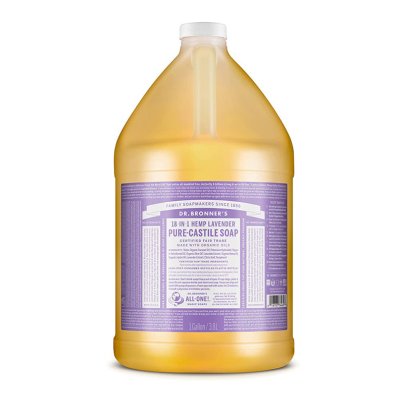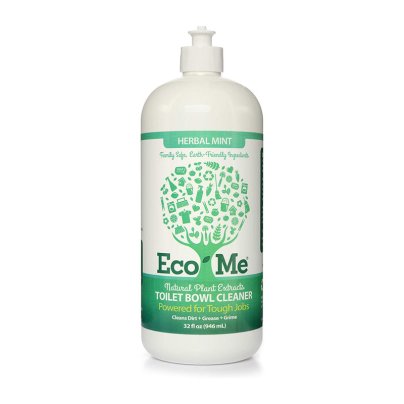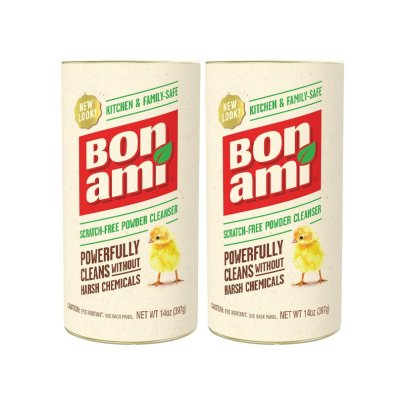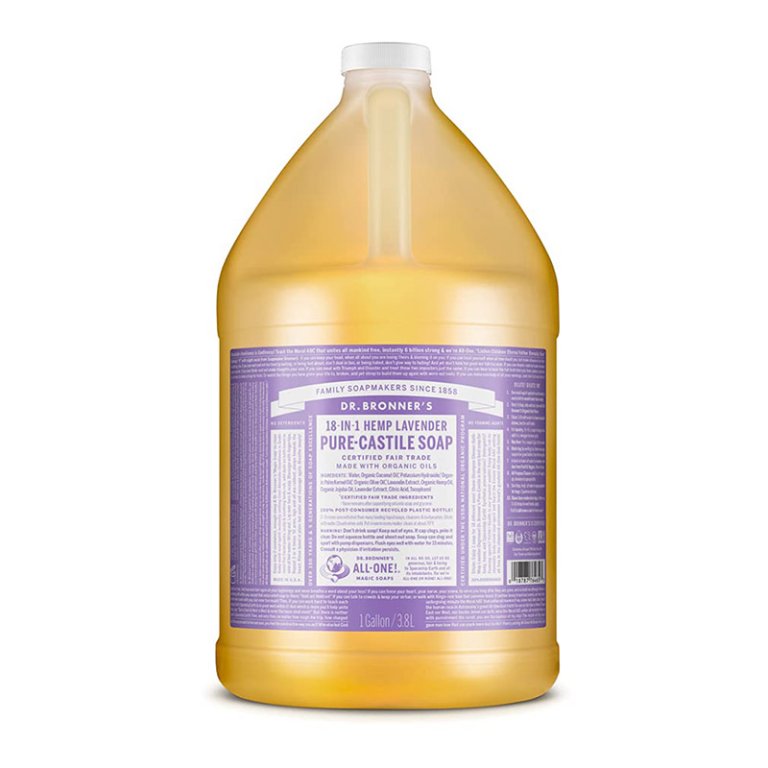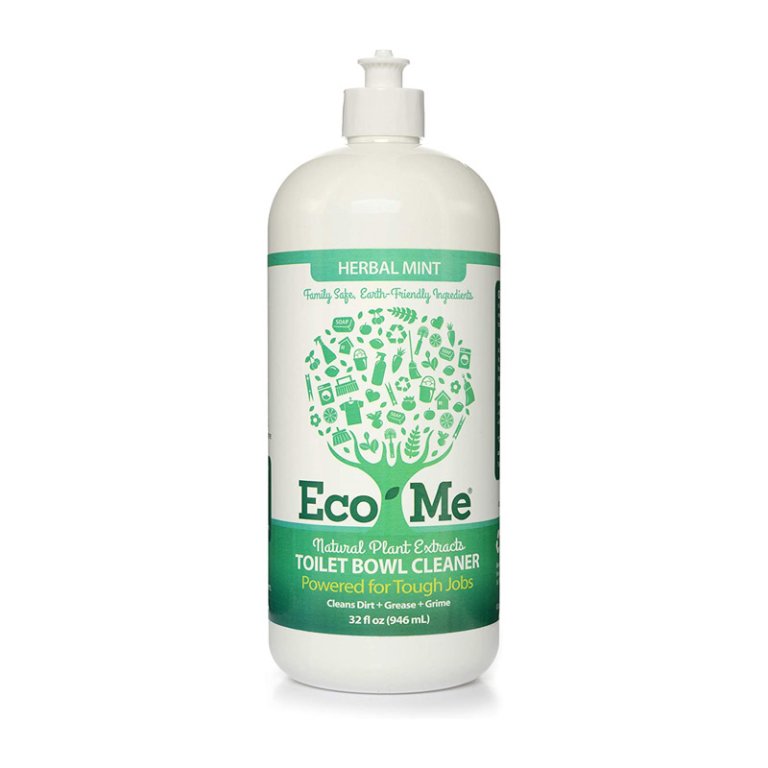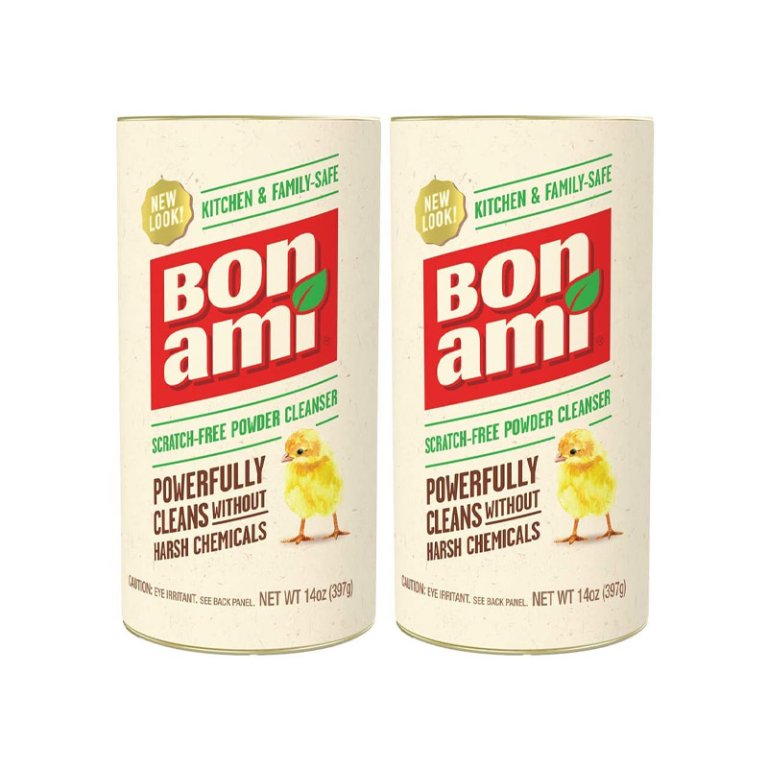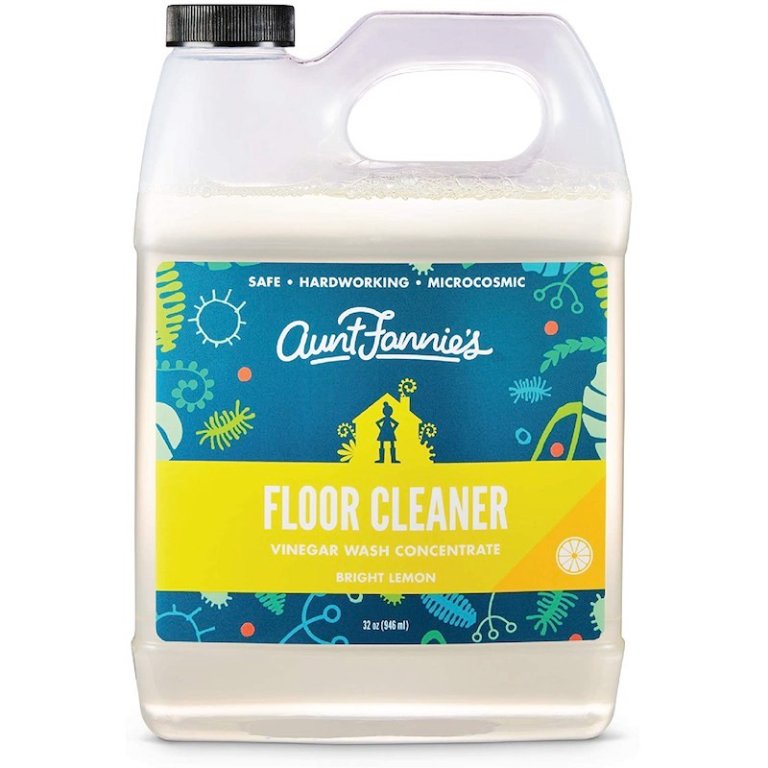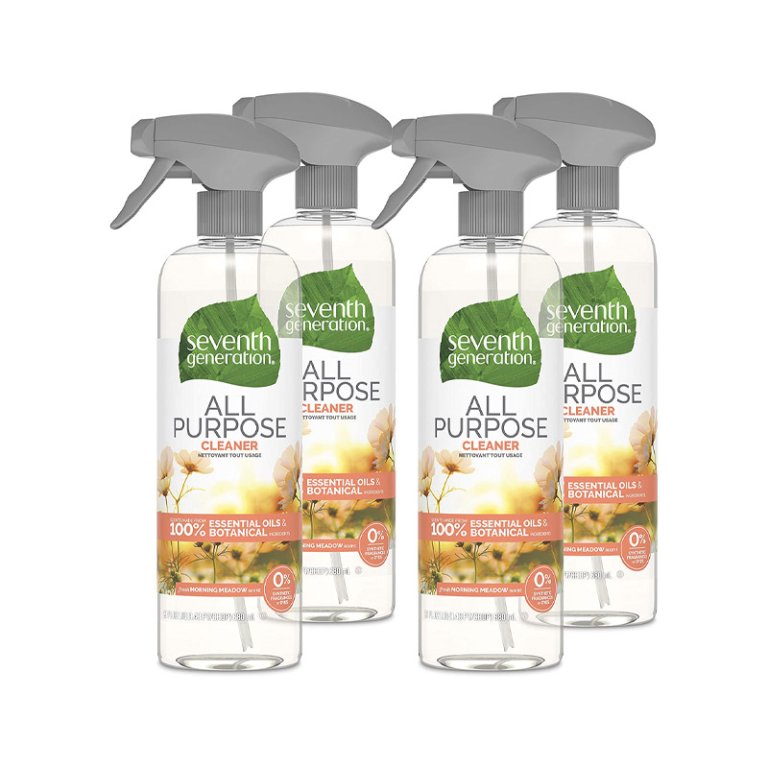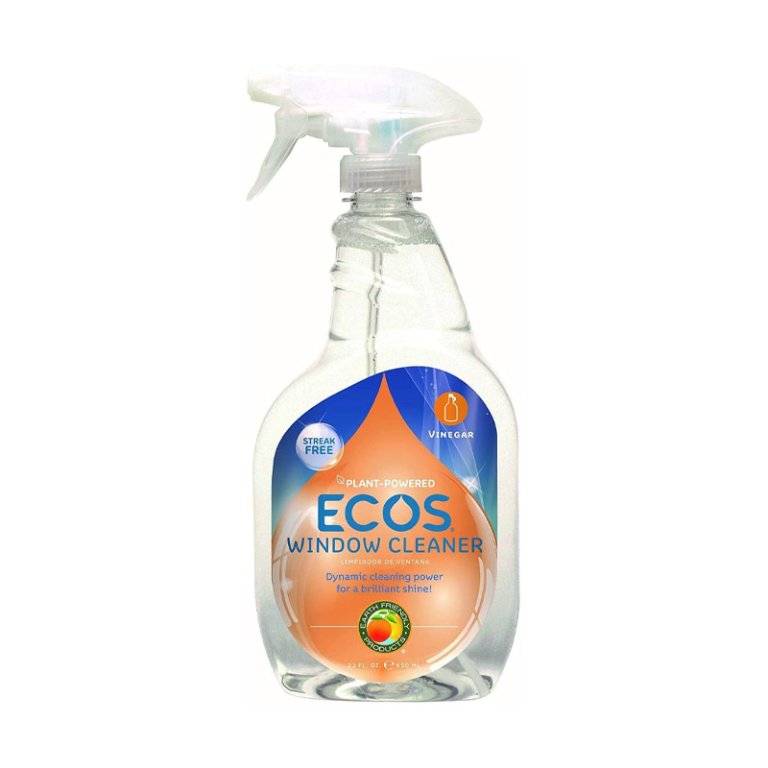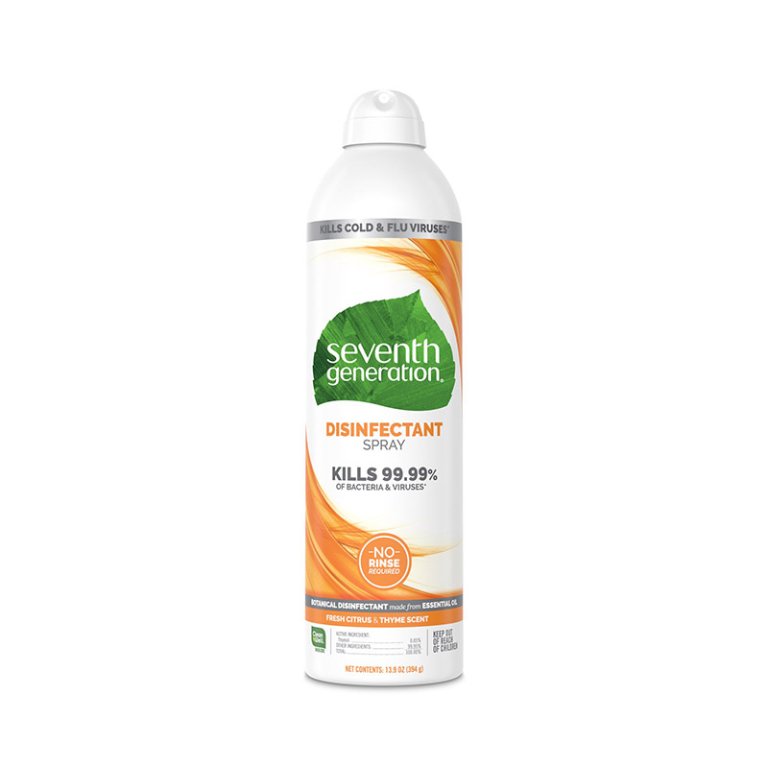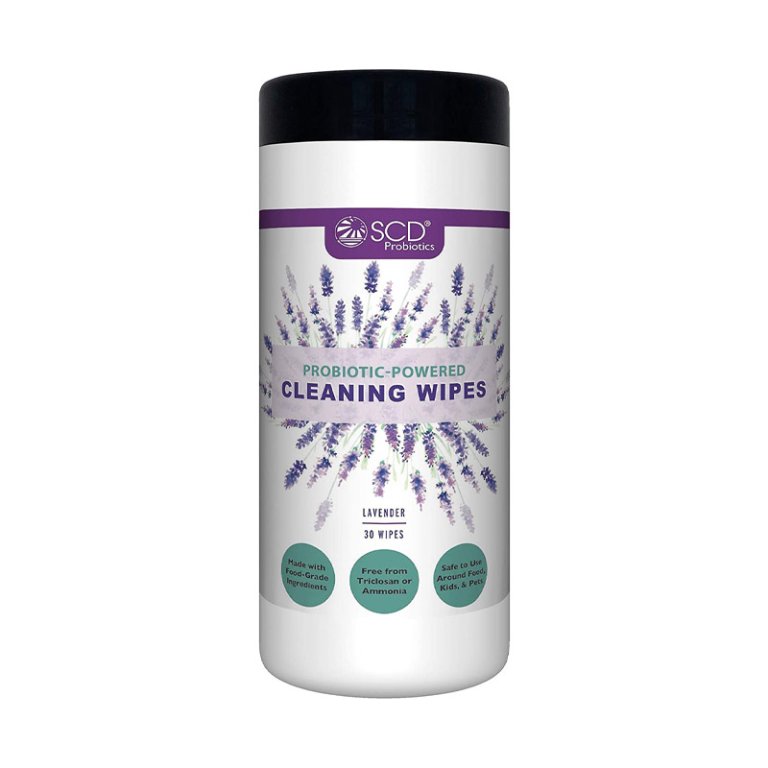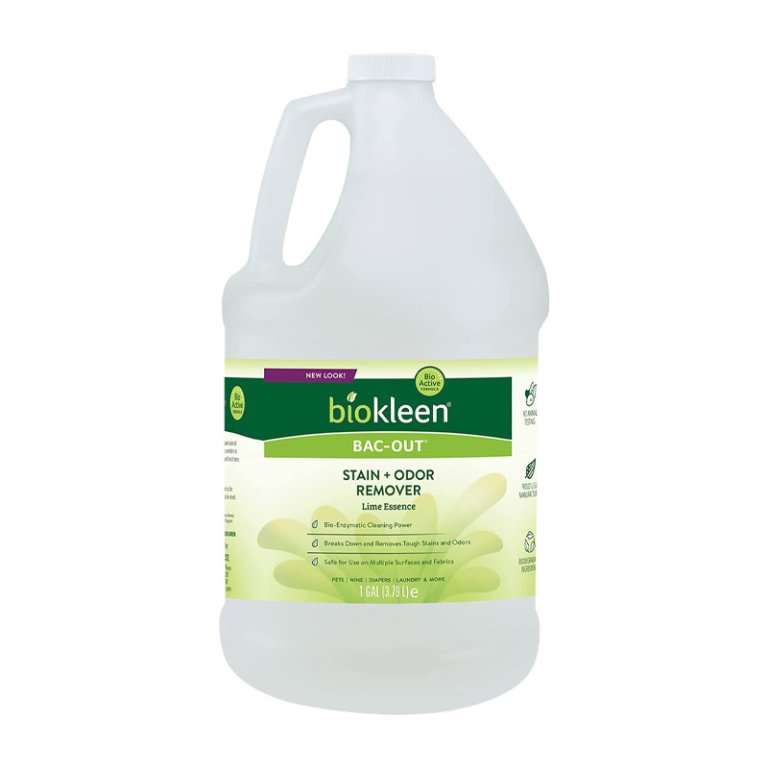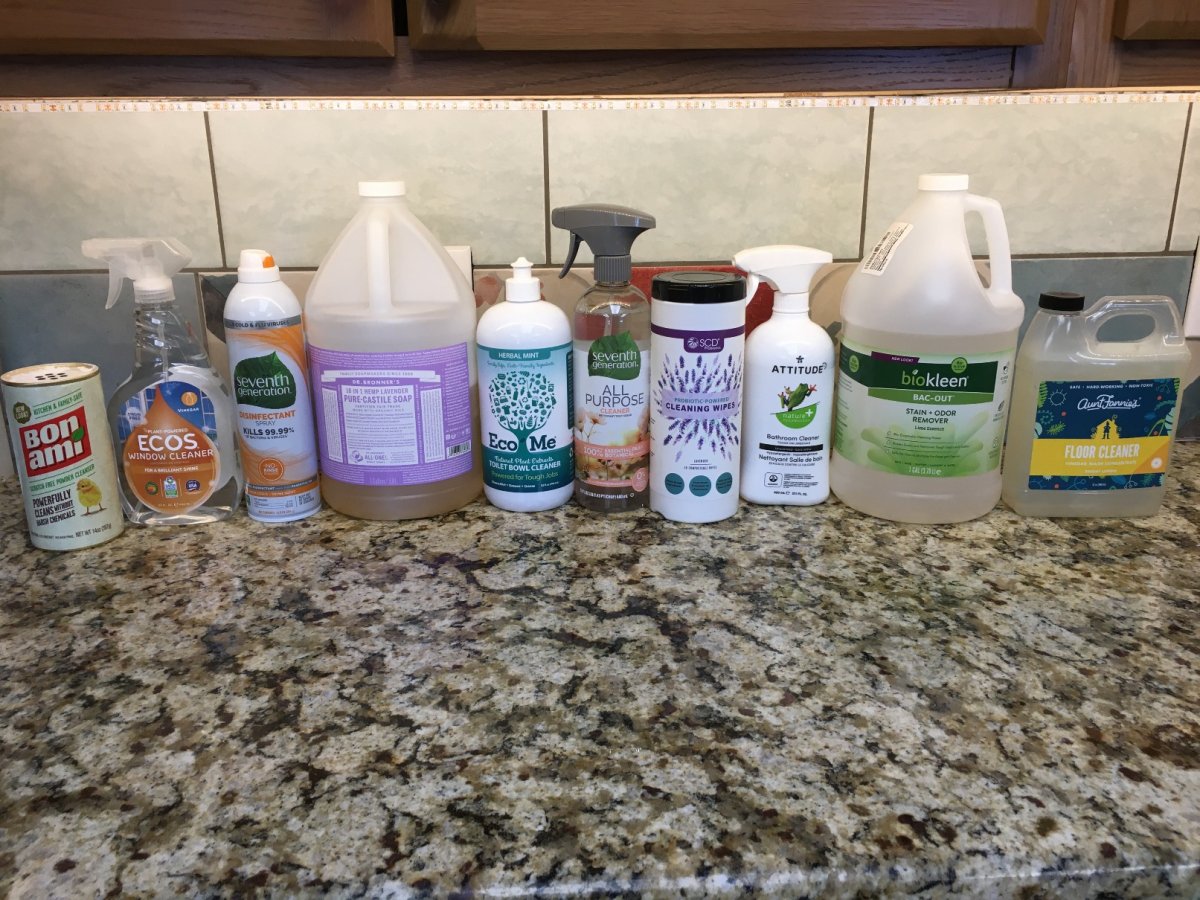
We may earn revenue from the products available on this page and participate in affiliate programs. Learn More ›
Going “all-natural” to protect your family while cleaning your home is a noble goal—one that’s not always easy to achieve. Many products claim to be “natural,” “eco-friendly,” or “nontoxic,” but the cleaning industry is largely unregulated by the Food and Drug Administration. Manufacturers are only required to specify ingredients that are active disinfectants and/or potentially harmful to your health. Few companies list all ingredients on the label, making informed purchases a challenge. Use this guide to understand what to keep in mind when shopping and get the details on our favorite picks for the best natural cleaning products available.
- BEST FOR GENERAL PURPOSES: Dr. Bronner’s Pure-Castile Liquid Soap
- BEST FOR TOILETS: Eco-me Natural Powerful Toilet Bowl Cleaner
- BEST FOR COOKWARE: Bon Ami Powder Cleanser
- BEST FOR FLOORING: Aunt Fannie’s Floor Cleaner Vinegar Wash
- BEST FOR BATHROOMS: ATTITUDE Bathroom Cleaner
- BEST FOR COUNTER & KITCHEN: Seventh Generation All Purpose Cleaner
- BEST FOR GLASS & WINDOWS: Earth Friendly Products ECOS Window Cleaner
- BEST FOR DISINFECTING: Seventh Generation Disinfectant Spray
- BEST WIPES: SCD Probiotics Compostable, Probiotic-Powered Wipes
- BEST FOR STAINS: Biokleen Bac-Out Stain Remover
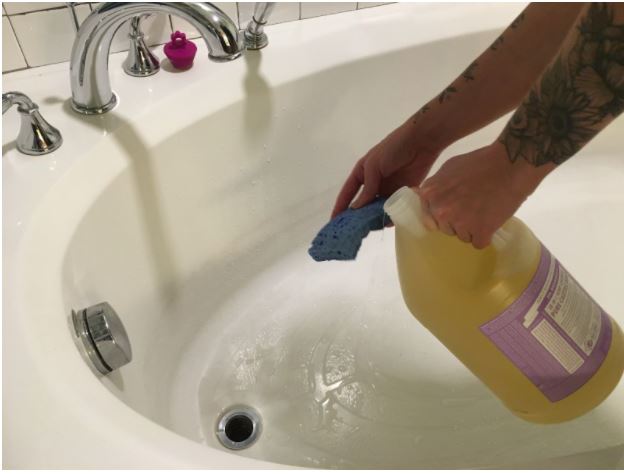
Tips for Picking Eco-Friendly Household Cleaners
Follow this general guidance when shopping for natural cleaning products.
Use trustworthy research. Base decisions on trusted sources, like the Environmental Working Group (EWG) Guide to Healthy Cleaning. This database, compiled by scientists, contains more than 2,500 product reviews as well as articles and independent research.
Be wary of greenwashing. Product packages may proclaim “all-natural” and “nontoxic” to signal product safety, but with no government regulation on such terms, labels could be misleading. “Some products market themselves as nontoxic, but they’re made with potentially toxic chemicals,” says Samara Geller, a researcher with EWG. Other red-flag terms include “eco-friendly,” “environmentally friendly,” “green,” “sustainable,” “biodegradable,” recyclable,” and “cruelty-free.” Instead of falling for hype, find companies that back up their claims with specific, detailed facts, which should be listed on their labels or websites.
Seek seals for security. Choose products that have been certified by Green Seal, an independent standard-setter for green industries. Also look for the Environmental Protection Agency’s Safer Choice seal, which indicates that formulas have been subjected to toxicity research and testing. Products that have not been tested on animals typically bear the Leaping Bunny certification in the United States.
Start small. Some folks may actually be sensitive to natural ingredients, so patch-test products before widespread use. For sprays, clean a small, contained area, and wipe with a paper towel. For toilet and floor cleaners, liquid soap, and nonchlorine bleach, use a limited amount once or twice and monitor household members for any ill effects.
Shop for safer ingredients. Cutting out chemicals isn’t as difficult when you know which naturally derived disinfectants and stain removers will do the job just as well. The cheat sheet below will help you replace chemical cleaning products with more natural options:
- For fragrance, shop for products naturally scented with essential oils and botanical extracts and avoid products with phthalates or butane.
- For antibacterial or antimicrobial power, rely on tea tree oil, hydrogen peroxide, and citric acid rather than harsh triclosan or quarternary ammonium compounds (QUATS).
- If cleaning glass, look for vinegar among the ingredients and skip sprays that list 2- butoxyethanol (butyl cellosolve) or ammonia.
- To banish stains, choose hydrogen peroxide, vinegar, or lemon juice rather than chlorine bleach or chlorinated phenols (often found in toilet bowl cleaners).
- If you need to scrub, search out cleansers with mildly abrasive minerals such as feldspar and calcite. Steer clear of troclosene sodium and dihydrate (an allergy hazard) included in some scouring products.

Our Top Picks
In choosing the natural cleaning products described here, we considered customer reviews, personal experience, and ingredient quality. From stain removers to disinfectants, these safe yet effective natural products met our testing parameters for ease of use, effectiveness, and ingredient integrity. Here, learn details about some of the best natural cleaning products for tackling tasks all around the house.
Best for General Purposes
Dr. Bronner's Pure-Castile Liquid Soap
Pros
- Versatile
- Bulk container
- Works well on many surfaces
- Concentrated formula can be diluted
Cons
- Large container size makes pouring difficult
- Can be drying to skin
Product Specs
- Effectiveness: Excellent
- Ease of use: Moderate
- Ingredients: Very eco-friendly
Dr. Bronner’s stands out as a longtime favorite of eco-conscious consumers that also receives an A grade from EWG. It’s made mainly from water and such natural oils as olive, palm kernel, coconut, jojoba, and hemp seed, plus vitamin E and citric acid to reduce pH levels and increase skin softness. The majority of ingredients are organic and certified fair trade. It comes in various sizes, including a 128-ounce bulk container, and it’s highly concentrated, so a little goes a long way.
Versatility is the hallmark of Dr. Bronner’s, as it works all over the house and can be safely used on the body for personal care as well. Used full-strength, for instance, it’s excellent on tough cleaning jobs like greasy stovetops; diluted, it does a great job on washing clothes or floors. Its gentle formula makes it safe to use on a spectrum of surfaces including acrylic, porcelain, tile, fabrics, and granite countertops.
Best for Toilets
Eco-me Natural Powerful Toilet Bowl Cleaner
Pros
- Pleasant, not overwhelming mint scent
- Lathers nicely for easy cleaning
- Requires minimal effort with scrubbing
Cons
- Doesn’t remove hard water stains
Product Specs
- Effectiveness: Excellent
- Ease of use: Easy
- Ingredients: Very eco-friendly
This simple yet effective toilet bowl cleaner is made from plant-derived soap, sodium bicarbonate, citric acid, and essential oils of lemongrass and peppermint. It does not contain sulfates, synthetic fragrances, or harmful chemicals and is safe for greywater (the noncontaminated water from sinks and showers) and septic tanks.
In our tests, this product was easy to apply and it removed built-up toilet bowl stains with minimal scrubbing; however, it couldn’t get rid of hard water stains. Its natural minty scent was refreshing, not overwhelming. It comes in a 32-ounce container.
Best for Cookware
Bon Ami Powder Cleanser
Pros
- Works on a variety of surfaces
- Abrasive enough to remove stains
- Easy to use
Cons
- Can leave a gritty texture behind
- Sticker on top of can doesn’t stay on
- Must apply amply
Product Specs
- Effectiveness: Excellent
- Ease of use: Moderate
- Ingredients: Very eco-friendly
Made of finely ground feldspar and calcite—two naturally occurring minerals—Bon Ami Powder Cleanser is an excellent choice for scouring pots and pans. The versatile product also works great on bathroom and kitchen fixtures, tubs and showers, most countertops, and stoves (though it’s not intended for brushed/polished stainless steel, glass/mirrors, some enamels, and lacquered or decorative surfaces). Bon Ami consistently ranks highly among experts and consumers alike, and it has an A grade from EWG.
We were impressed with how well Bon Ami cleaned up a variety of cookware surfaces. It performed equally well on a heavily stained stainless steel pot, cast-iron sink, and porcelain teacup. In the bathroom, however, we found that it left a gritty texture in the tub, even after rinsing, and required going back over with a clean sponge to remove the residue. It comes in a 14-ounce canister and dispenses easily, but we found it necessary to use a fair amount of the powder to get the job done.
Best for Flooring
Aunt Fannie's Floor Cleaner Concentrate
Pros
- Concentrated, not much product is needed
- Subtle scent
- Can be used with any kind of mop
Cons
- Bottle shape makes pouring difficult; spilling may occur
Product Specs
- Effectiveness: Excellent
- Ease of use: Easy
- Ingredients: Very eco-friendly
For tile, linoleum, and even wood floors, Aunt Fannie’s simple formula of water, vinegar, and myristyl glucoside (derived from coconut, palm kernel oil, or corn sugar) works quite well. Essential oil–scented varieties, such as Eucalyptus and Fresh Mandarin, minimize the acidic vinegar odor. While Aunt Fannie’s receives an A grade from EWG, we recommend that any essential oil–infused products be kept out of reach of children and pets for safety.
Manufacturer directions instruct mixing a quarter cup of the product (which comes in a 32-ounce jug) into 2 gallons of water, but on our small test area we used just a splash of Aunt Fannie’s in a quart of water and got good results. Using a microfiber mop, we didn’t have to work too hard to quickly lift grease, grime, dirt, and stains from the floor. The subtle aroma was pleasant, and the product left no residue.
Best for Bathrooms
ATTITUDE Bathroom Cleaner
Pros
- No scent
- Removes stubborn hard water stains
- Versatile
Cons
- Requires more scrubbing than anticipated
- Must sit for up to 10 minutes for optimum effectiveness
- Requires a scrubbing sponge, not a cleaning cloth or rag
Product Specs
- Effectiveness: Moderate
- Ease of use: Difficult
- Ingredients: Somewhat eco-friendly
This unscented cleaner from ATTITUDE is designed to remove tough stains from limescale, hard water, soap scum, and grime on a host of bathroom surfaces, including glazed tiles, tubs, vinyl shower curtains, shower doors, and toilet bowls. While it did a decent job in our tests, it does need a bit of dwell time to get the job done: Let it sit for 5 to 10 minutes before scrubbing, using some serious elbow grease.
The product effectively banished a stubborn hard-water stain in the bathroom sink and cleaned countertops with success. For limescale, we found that ATTITUDE worked best when applied with an abrasive sponge rather than a cloth or rag. It comes in a 27.1-ounce spray bottle with refill sizes available.
Best for Counter u0026 Kitchen
Seventh Generation All Purpose Cleaner
Pros
- Works on a variety of surfaces
- Easy-to-use spray bottle
Cons
- Contains synthetic preservatives
Product Specs
- Effectiveness: Excellent
- Ease of use: Easy
- Ingredients: Somewhat eco-friendly
Seventh Generation’s All-Purpose Cleaner can be used on many hard surfaces, which makes it our top pick for countertops and other kitchen areas. Use it with confidence on bamboo, acrylic, cork, fiberglass, granite, glass, metal, and finished wood but not brass, concrete, marble, or unfinished wood. We tested it on countertops and stainless steel appliances and got clean, streak-free results.
Although made with natural ingredients such as citric acid and essential oils, it does contain two synthetic preservatives, so it doesn’t quite make the cut for complete eco-friendliness. The scent is also a bit strong; fortunately, a fragrance-free version is available. It comes in an easy-to-use 23-ounce spray bottle.
Best for Glass u0026 Windows
Earth Friendly Products ECOS Window Cleaner
Pros
- Streak-free finish
- Works on countertops
- Easy to apply
- Can be used with paper towel or microfiber cloth
Cons
- Slight vinegar smell
Product Specs
- Effectiveness: Excellent
- Ease of use: Easy
- Ingredients: Very eco-friendly
Made mostly with vinegar, alcohol, and decyl glucoside, a plant-derived surfactant, this glass and window cleaner is biodegradable, pH balanced, and free of dyes and parabens. It can also be used to clean and shine a variety of other materials for a streak-free finish.
It comes in a 22-ounce spray bottle and the applicator releases a generous amount, making it easy to cover large areas of glass. It performed especially well removing marks from a bathroom mirror. Though described as unscented, it does have a slight vinegar smell, but this dissipates fairly quickly after use.
Best for Disinfecting
Seventh Generation Disinfectant Spray
Pros
- Natural active ingredient
- No need to wipe after use
- Removes odors
- Kills 99.99 percent of bacteria and viruses
Cons
- Sprayer difficult to push down
- Must dwell on surfaces for 10 minutes
Product Specs
- Effectiveness: Good
- Ease of use: Difficult
- Ingredients: Somewhat eco-friendly
This natural product is designed to disinfect and deodorize hard and nonporous surfaces, such as various kitchen and bathroom materials, as well as children’s toys and furniture. It kills 99.99 percent of bacteria and viruses via its active ingredient, thymol, a derivative of the oil extracted from thyme. As a disinfectant with powerful antibacterial properties, it not surprisingly has a fairly strong smell. Other essential oils, such as ylang ylang, orange, grapefruit, and geranium, help to balance out the scent.
Though we found the product effective, the sprayer mechanism in the 13.9-ounce container proved a bit difficult to use, and quite a lot came out of the nozzle. The cleanser must be left on the surface for 10 minutes, so while it needn’t be wiped away, the lengthy dwell time can be an inconvenience.
Best Wipes
SCD Probiotics Compostable, Probiotic-Powered Wipes
Pros
- Home compostable
- Soothing organic lavender scent
- Effective at removing spills and debris
Cons
- Can leave streaks on some surfaces
- Somewhat small size
- Only 30 wipes per canister
Product Specs
- Effectiveness: Excellent
- Ease of use: Easy
- Ingredients: Very eco-friendly
Made only with water, a bio-fermented probiotic extract, lavender essential oil, and viscose fibers, these cleaning wipes are home compostable to reduce landfill waste. While not flushable, the wipes are designed for safe disposal in a compost bin. We found the wipes effective at banishing crumbs and coffee stains from granite countertops without leaving residue or streaks. However, we did notice some streaking on plastic surfaces and chrome faucets.
The wipes proved convenient for everyday cleaning, but the label recommends removing “excess mess” from “very dirty surfaces,” so they’re not a go-to product for seriously grimy areas. They could also be a bit bigger; just one wipe might not be able to tackle a large island or stretch of countertop. The compostable wipes come in a 30-count canister; a larger number would be preferable.
Best for Stains
Biokleen Bac-Out Stain Remover
Pros
- Large container
- Removes odors
- Does not need to be rinsed
Cons
- Strong smell
- Long dwell time required for set-in stains
- Does not remove oil or petroleum-based stains
Product Specs
- Effectiveness: Moderate
- Ease of use: Moderate
- Ingredients: Eco-friendly
To banish many fresh as well as set-in stains—even pet accidents—along with their odors, consider Biokleen’s enzyme culture formula. It is bleach- and phosphate-free and can be used for laundry, carpets, garbage cans, and other fabrics and surfaces. There’s no need to rinse the product out when finished treating the stain, which we found very convenient.
However, for optimum effectiveness on set-in stains, Biokleen must sit for a long period, and it may need to be reapplied. Although the scent is naturally derived, it is a bit strong and, since the stained area must be saturated with the product, it can be a bit overwhelming when used in close quarters. It comes in an ample 128-ounce jug, and the product can be poured into a spray bottle for easier application.
Our Verdict
After testing, our favorite products proved to be Dr. Bronner’s Pure-Castile Soap, for its versatility and effectiveness, and Bon-Ami for its gentle yet impressive performance. We were also wowed by Compostable, Probiotic-Powered Wipes from SCD Probiotics since a compostable wipe is a rare find.
How We Tested the Best Natural Cleaning Products
Each cleaning product was used as directed on the label and tested on surfaces appropriate for the formula. We applied a rubric of eco-friendliness, ease of use, and overall effectiveness. All products were tested in heavily trafficked areas of the home, including the kitchen, bathroom, and laundry room. Granite, ceramic, porcelain, glass, plastic, and stainless steel were all included in the testing process; for the stain remover, fabrics were exclusively used.
FAQs
Making the switch from conventional household cleaners to natural ones can raise some questions. Here are answers to some of the most common queries about natural cleaning products.
Q. Are natural household cleaners effective?
Yes. Natural household cleaners use plant-derived or naturally derived ingredients that are as effective as conventional cleaners but without many of the health hazards.
Q. How can I disinfect my house naturally?
Natural disinfectants such as Seventh Generation Natural Disinfecting Spray can disinfect the home without the use of harsh chemicals.
Q. How can I tell if a cleaning product is all-natural?
Consider both the active and inactive ingredients. The active ingredients should be nontoxic, preferably plant-derived, and biodegradable. The product should also be free of synthetic fragrances.
